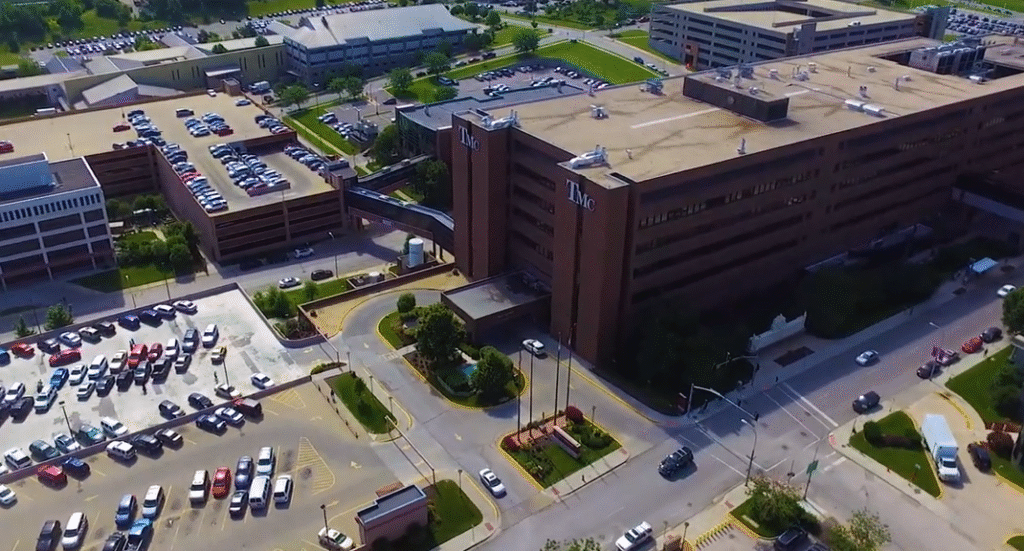The reputation of healthcare in Kansas City has become remarkably similar to the arcs of previously underappreciated but now acclaimed cities, such as Cleveland with its Clinic or Rochester with Mayo. The University of Kansas Hospital serves as the cornerstone of this change, and its rankings have been incredibly successful in reestablishing Kansas City as a center for healthcare. According to patients, the experience is very clear, with cutting-edge treatment plans combined with empathy that makes even the most challenging diagnoses easier.
Another pillar is St. Luke’s Hospital, which is especially helpful in cardiovascular medicine. Its heart institute is more than just a facility; it is a lifeline for families in Kansas and Missouri, offering procedures that are far safer and quicker than those used in previous decades. St. Luke’s expertise is discreetly relied upon by celebrities, professional athletes, and business leaders, serving as a reminder that trust in healthcare is not limited by wealth or fame.
Perhaps the most poignant tale is offered by Children’s Mercy Kansas City. Because of its expertise in rare diseases, autism research, and neonatal units, parents travel hundreds of miles. With services ranging from routine pediatric needs to highly experimental therapies, the hospital has become incredibly adaptable. No ranking could adequately capture the impact of Children’s Mercy, as evidenced by the firsthand accounts of families whose children recovered their health there.
Profiles of Leading Health Systems in Kansas City
| Facility | Location | Specialty Strengths | Recognition/Rankings | Notes | Source Link |
|---|---|---|---|---|---|
| The University of Kansas Hospital | Kansas City, KS | Cancer, Cardiology, ENT, Neurology, Psychiatry | Ranked nationally in 8 specialties, #1 in KC | Academic medicine leader, teaching + research | KU Health |
| St. Luke’s Hospital | Kansas City, MO | Cardiovascular care, neurology, transplant services | Top-50 nationally ranked hospital | Strong Missouri-side presence, trusted by athletes | US News |
| Children’s Mercy Kansas City | Kansas City, MO | Pediatrics, Neonatal care, Autism, Rare conditions | Consistently top-ranked children’s hospital | Known nationally for child health innovation | Children’s Mercy |
| HCA Midwest Health | Greater KC Metro | Trauma care, ERs, general surgery, cancer care | Largest healthcare network in region | 7 hospitals, 150+ care sites, strong accessibility | HCA Midwest |
| North Kansas City Hospital | North Kansas City, MO | Orthopedics, heart care, women’s services | Ranked among best regional hospitals | Community-focused, consistently praised by patients | NKC Health |

HCA Midwest Health provides excellent service to the urban sprawl. With seven hospitals and more than 150 care locations, it has greatly lowered obstacles for patients in rural and suburban areas. From pandemic surges to tornado emergencies, its trauma centers have proven to be remarkably resilient in recent years. Unquestionably, the economic impact is significant, supporting the city’s reputation as a healthcare hub, creating thousands of jobs, and contributing more than $1 billion a year.
Additionally deserving of recognition is North Kansas City Hospital. It has significantly enhanced clinical results and patient satisfaction, despite frequently being disregarded in comparison to its larger counterparts. According to residents, it is very dependable for routine but essential community services, women’s health, and orthopedic surgeries. It represents the harmony that Kansas City provides: both powerful local anchors and highly regarded hospitals on a national scale.
This place’s healthcare culture transcends the confines of the clinic. The Healthy KC campaign promotes workplace wellness, improved diet, and increased physical activity. By fusing preventive medicine with civic pride, it is especially creative in creating behaviors that lessen the need for hospital beds. It is comparable to how Kansas City used to brand itself through barbecue, one could say, but the message is now one of longevity and health.
Another defining theme is mental health. With programs like transcranial magnetic stimulation and all-encompassing addiction recovery, the University of Kansas Health System runs a preeminent psychiatry and behavioral sciences program. During the pandemic, when working remotely became commonplace and mental stress increased, these services proved remarkably effective in averting more serious crises.
The contrasts are instructive. Denver’s hospitals are excellent at treating trauma; Minneapolis’s are good at cardiology; and Dallas’s are good at research. However, Kansas City offers a surprisingly low cost of living and care, which is comparable to these cities. This combination is very flexible for both new professionals and residents. Kansas City’s quality and accessibility make it a model for other mid-sized metro areas.
The narratives make the numbers more relatable. The impact of healthcare is better illustrated by anecdotes than by charts. For example, a heart transplant recipient at KU Med describes the moment her life was extended; a family whose autistic child thrived after Children’s Mercy interventions; and an elderly patient at North Kansas City regains mobility after a hip replacement.
There are still difficulties, of course. Lower safety ratings for University Health Truman Medical Center in a few areas serve as a sobering reminder that consistency is still desired. But all things considered, the trajectory has significantly improved, and the city’s health landscape appears remarkably resilient to upcoming difficulties.
The impact on society at large is just as compelling. Businesses take healthcare quality into account when selecting a headquarters, and Kansas City’s facilities aid in luring in corporate capital. The assurance that life-saving care is only minutes away rather than hours away by plane is priceless for residents. It is about community, trust, and continuity of care, not just about treatment.
